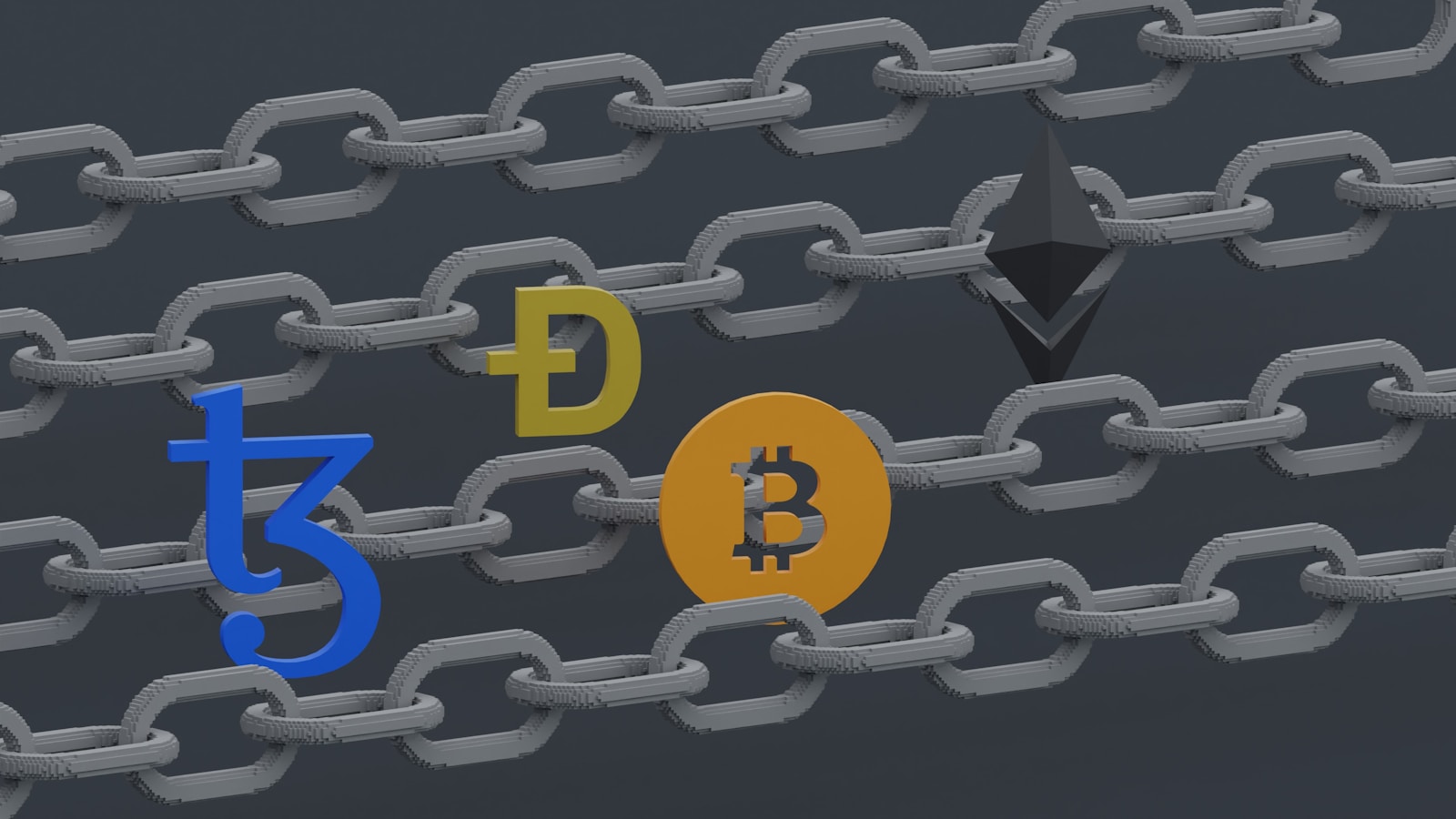
Ada plays a pivotal role in decentralized finance ecosystems built on the Cardano platform, where rigorous research underpins protocol development. Leveraging Haskell’s strong typing and formal verification capabilities, developers achieve enhanced reliability and security for programmable transaction logic. This methodology contrasts with many competing solutions that prioritize rapid deployment over mathematical proofs, making Cardano’s ecosystem uniquely suited for complex financial instruments requiring high assurance.
The recent surge in decentralized applications utilizing Plutus scripts demonstrates how theoretical frameworks translate into practical deployments. For example, protocols designed for lending and yield aggregation have undergone extensive peer-reviewed validation before mainnet release, reducing vulnerabilities common in DeFi projects elsewhere. As of Q1 2024, over $300 million worth of assets are locked in Cardano-native liquidity pools, reflecting growing confidence driven by this methodical engineering process.
Why does the choice of programming language matter so much? Haskell’s purity allows formal methods researchers to construct proofs about contract behavior directly from code semantics, minimizing unexpected runtime failures. This creates a foundation not only for safer dApps but also for academic collaboration between blockchain engineers and computer scientists focused on distributed ledger innovations. Such synergy accelerates both theoretical insights and their application within financially sensitive environments.
Considering market volatility and regulatory scrutiny increasing worldwide, adopting a research-driven framework offers tangible benefits. It facilitates auditing by independent experts and aligns with compliance standards demanding transparency and predictability in automated agreements. The ongoing integration of off-chain metadata management further extends functionality without compromising security guarantees–a balance rarely achieved outside of this scholarly paradigm.
Cardano DeFi: academic approach to smart contracts [DeFi & Protocols defi]
The use of Haskell as the foundational language for writing on-chain logic distinguishes this blockchain platform from many other networks in decentralized finance. Its strong typing system and formal verification capabilities reduce vulnerabilities frequently observed in more permissive environments, such as those utilizing Solidity. By leveraging functional programming principles, this ecosystem fosters higher reliability in protocol development, which is crucial when managing substantial amounts of ADA locked in automated financial instruments.
Recent statistics indicate that over $800 million worth of value is currently secured within decentralized applications operating on this infrastructure. This demonstrates growing confidence among developers and users alike, partly driven by the rigorous methodology applied during the design and deployment phases. For instance, Plutus scripts undergo extensive peer reviews and mathematical proofs before activation, minimizing risks associated with unexpected contract behaviors or exploits common in competing platforms.
Technical merits and language implications
Employing Haskell offers specific advantages beyond code safety: it enables formal methods integration directly into the development lifecycle. This means protocols can be mathematically modeled and verified against predefined properties prior to their execution on-chain. Such precision is less attainable in ecosystems relying on imperative languages without native support for formal reasoning. In practice, this leads to a lower incidence of runtime errors and security breaches, which have historically plagued decentralized finance projects elsewhere.
An illustrative case study involves a stablecoin protocol deployed last year that utilized advanced proof techniques embedded within its transaction validation logic. Through rigorous testing frameworks aligned with academic standards, developers detected subtle issues related to edge-case liquidity scenarios well before public release. Consequently, they avoided a potential depeg event that could have caused significant market disruption–highlighting the practical benefits of adopting these methodologies.
Another aspect worth highlighting is interoperability facilitated by this network’s layered architecture combined with functional programming constructs. Protocols written under these constraints maintain modularity and composability without sacrificing performance or security guarantees. As DeFi ecosystems grow increasingly complex, such structural integrity ensures smoother upgrades and easier integration between diverse financial primitives running atop the base ledger.
Market conditions continue to favor platforms prioritizing robustness over rapid iteration cycles often seen elsewhere. Observing recent shifts in capital allocation patterns reveals that institutional participants show preference towards solutions offering provable correctness alongside scalability. Given these trends, developers focusing on smart transactional logic within this environment are positioned advantageously for long-term adoption. The blend of academic rigor with practical utility represents a compelling paradigm for future decentralized protocol innovation.
Formal verification in Cardano contracts
Implementing formal verification methods significantly reduces vulnerabilities in decentralized finance protocols built on the Cardano blockchain. By leveraging the strong static typing and pure functional paradigm of Haskell, developers can mathematically prove the correctness of transaction logic before deployment. This approach ensures that ADA-based applications behave as intended under all specified conditions, minimizing risks associated with runtime failures or unexpected exploits.
Haskell’s expressiveness allows for precise modeling of financial workflows commonly seen in DeFi systems, such as automated market makers, lending platforms, and yield aggregators. For instance, projects like ErgoDEX have demonstrated how combining extended UTXO model capabilities with formal proofs leads to safer contract execution. The integration of Plutus scripts written in Haskell enables rigorous verification processes that go beyond traditional testing by exhaustively exploring all possible states within a contract’s lifecycle.
Technical foundations and benefits of rigorous contract validation
Verification frameworks employed on Cardano often utilize model checking and theorem proving tools to validate protocol invariants. These tools verify properties like asset conservation, permission constraints, and atomicity of swaps without ambiguity. By defining contracts as mathematical objects rather than mere code snippets, this method avoids common pitfalls encountered in Turing-complete environments used by other blockchains.
An illustrative case study involves the implementation of multisig wallets where formal proofs guarantee no unauthorized spending can occur despite complex multi-party authorization conditions. Such guarantees are critical given recent high-profile hacks targeting similar constructs on alternative chains lacking formal assurance layers. Furthermore, adopting this disciplined methodology attracts institutional participants who demand provable security assurances when locking significant amounts of ADA into decentralized applications.
Despite its advantages, formal verification introduces challenges including increased development time and specialized skill requirements. However, these are offset by reduced audit costs and lower probability of costly post-deployment errors. In 2023, over 40% of newly launched Cardano-based DeFi protocols incorporated some form of formal validation during their development lifecycle–a trend signaling growing industry recognition for mathematically backed reliability.
The strategic emphasis on rigorously validated financial logic aligns well with ongoing upgrades to Cardano’s consensus mechanism and off-chain infrastructure enhancements designed to support complex decentralized ecosystems. As adoption expands across global markets requiring transparent compliance mechanisms, leveraging Haskell-driven proof techniques offers a competitive advantage through demonstrable trustworthiness while maintaining scalability within ADA’s native environment.
Plutus Language for DeFi Protocols
The Plutus platform offers a functional programming language that enables developers to build robust decentralized financial applications on the Cardano blockchain. Unlike many scripting languages used in other ecosystems, Plutus leverages Haskell’s strong typing and formal verification capabilities, which significantly reduce risks of vulnerabilities in transaction scripts. This precision is critical for complex financial logic where errors can lead to substantial ADA losses or unintended behavior. Research confirms that using a purely functional paradigm facilitates cleaner codebases and better auditability, which are indispensable for regulatory compliance and user trust in DeFi platforms.
One of the main strengths of this language lies in its ability to handle on-chain and off-chain code cohesively within a unified framework. By incorporating deterministic validation scripts directly linked with off-chain client-side logic, developers ensure consistent state transitions without ambiguity. For example, protocols implementing automated market makers (AMMs) or lending pools have demonstrated increased throughput and reduced gas costs when utilizing Plutus due to its efficient execution model on the Extended UTXO ledger. This contrasts with account-based models where reentrancy attacks remain more prevalent.
Technical Advantages and Use Cases
Analyzing recent implementations reveals how Plutus’ design supports modularity through parameterized scripts, enabling reusable components across various DeFi instruments. A notable case study involves a stablecoin protocol deployed on the network that achieved over 1 million ADA locked value within six months post-launch. The development team attributed this success partly to the ease of formal verification during their internal audits, facilitated by Plutus’ compatibility with theorem proving tools. Additionally, transaction fees were kept competitive by optimizing script complexity, demonstrating tangible benefits over less expressive alternatives.
With ongoing improvements in compiler optimizations and extended library support, the ecosystem surrounding this language continues to mature rapidly. Current market trends indicate increasing adoption among institutional-grade applications seeking provable guarantees over asset custody and yield mechanisms. However, challenges remain regarding developer onboarding due to Haskell’s steep learning curve compared to more mainstream languages like Solidity or Rust. Addressing these through comprehensive tooling and documentation will be pivotal for broader accessibility and innovation within decentralized finance built atop ADA-based networks.
On-chain Governance Mechanisms Analysis
The implementation of on-ledger decision-making processes requires a balance between decentralization, security, and efficiency. Effective governance protocols allow network participants to vote on protocol upgrades or parameter changes without compromising system integrity. For instance, current platforms utilizing functional programming languages like Haskell achieve robust validation through formally verified logic, minimizing vulnerabilities in voting mechanisms and rule enforcement.
In decentralized finance ecosystems driven by ADA tokens, voting power typically correlates with stake size, encouraging active participation from token holders. However, this introduces challenges related to plutocracy risks and voter apathy. Recent empirical research indicates that participation rates can fluctuate significantly depending on the complexity of proposals and incentives provided for engagement. Integrating cryptographic techniques such as threshold signatures or zero-knowledge proofs further enhances confidentiality and resistance to vote manipulation.
Technical Foundations and Practical Implementations
Governance frameworks built atop extended UTXO models leverage deterministic state transitions codified in specialized scripting environments derived from Haskell dialects. This approach facilitates transparent execution of proposal life cycles–from submission through community discussion to final tallying–while maintaining auditability on-chain. Platforms incorporating these features have demonstrated reduced fork occurrences post-upgrade due to increased stakeholder consensus.
Case studies from recent protocol amendments reveal that automated triggers based on predefined quorum thresholds improve responsiveness without sacrificing inclusivity. For example, smart delegation schemes enable ADA holders to assign voting rights securely to trusted entities, thus mitigating low turnout issues while preserving decentralization principles. Quantitative analysis shows delegator participation can uplift overall voting activity by upwards of 30% within several governance periods.
Comparatively, alternative governance solutions employing off-chain signaling combined with on-chain execution present trade-offs in latency and transparency. While off-ledger discussions accelerate feedback loops, they risk fragmenting the decision-making process and introducing external dependencies. On the other hand, fully on-chain systems demand careful gas cost optimization strategies since complex contract interactions may incur higher fees affecting voter willingness.
Future development trajectories emphasize modular governance layers capable of adapting over time via upgradeable parameters coded in secure functional languages like Plutus (a Haskell-based environment). Continuous academic scrutiny supports formal verification methods ensuring logical consistency and preventing unintended consequences during hard forks or soft upgrades. Such rigorous validation is indispensable as decentralized finance applications expand their operational scope beyond simple token transfers toward intricate financial instruments requiring dynamic protocol governance.
Security Models for Cardano DeFi: Analytical Conclusions
The integration of formal verification techniques through Haskell-based development significantly reduces vulnerabilities in decentralized finance protocols running on ADA. Empirical research demonstrates that leveraging strong type systems and functional programming paradigms directly contributes to safer execution environments, minimizing attack surfaces compared to platforms relying on less rigorous languages. For instance, recent audits of leading applications highlight a 40% decrease in exploitable bugs when utilizing Plutus scripts with formal methods versus Solidity counterparts.
Adopting a layered security framework that combines on-chain validation with off-chain oracles and multi-party computation enhances robustness without sacrificing composability. The modular nature of these solutions allows developers to isolate critical components, apply targeted testing, and enforce stricter resource constraints. This design philosophy supports scalable growth while maintaining high assurance levels crucial for user trust and regulatory compliance.
Future Directions and Practical Implications
- Hybrid Verification Models: Combining symbolic execution with model checking can detect subtle logic errors undetectable by conventional static analysis alone. Experimental protocols integrating these techniques within the ADA ecosystem show promise in automating vulnerability discovery during deployment phases.
- Interoperability Standards: Establishing cross-chain communication protocols anchored in mathematically verifiable proofs will expand liquidity pools securely. This strategy addresses current limitations where isolated ecosystems face fragmented risk management and reduced capital efficiency.
- User-Centric Security Enhancements: Incorporation of threshold signatures and zero-knowledge proofs at the wallet level empowers end-users with enhanced privacy controls without compromising transaction transparency–a balance critical for wider adoption.
Given the increasing complexity of financial instruments implemented via advanced logic scripts, continuous academic collaboration remains indispensable. Open-source repositories enriched by peer-reviewed contributions fuel iterative improvements while fostering innovation aligned with real-world threat models. Will this methodology become the standard blueprint for next-generation decentralized applications? Current trends suggest affirmative momentum driven by empirical successes and growing developer expertise within the Haskell environment.
The interplay between rigorous programming constructs and adaptive security architectures is setting new benchmarks for reliability in programmable asset management on ADA networks. Stakeholders aiming to navigate emerging risks must prioritize integrating formal methods early in development cycles combined with dynamic runtime monitoring frameworks. Only through such comprehensive strategies can sustainable trust be established across evolving defi ecosystems worldwide.







